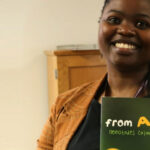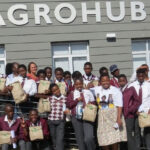
The Faculty of Social Sciences Impact for social justice
Faculty of AgriSciences members came together to have discussions on their impactful projects at the Amazink in Khayamandi. The Faculty’s Dean opened the event by sharing a background history of the Faculty with the audience.
Guest speaker Prof Jonathan Jansen from the Education Faculty touched on the Khampepe report and the major focus of his discussion was on ‘deep transformation’.
He also stated that in five years’ time, Stellenbosch University student numbers would be fully diverse, as the number of non-white students at the University is slowly showing and increase each year. That is the type of transformation set for the University.
Prof Jansen urges individuals to self-introspect and says “Deep transformation will only happen when we transform ourselves first as individuals. We need to look deep within us. It is impossible to transform other people unless we are transformed ourselves,” he continued.
Henk Stander provided an overview of the Jala Peo initiative, which is a Sotho word for ‘seed planting’ and is part of the National School Nutrition Programme (NSNP). The initiative promotes nutritional education by improving nutritional knowledge and healthy food choices, and a healthy lifestyle. He also mentioned the School Food and Nutrition Gardens (SFNG) Programme that gives teachers and students hands-on experience with agricultural initiatives.
Dr Melissa van der Merwe, lecturer in Agricultural Economics, discussed the progress of a project she is working on to provide training to smallholder farmers in Africa.
Khalid Salie from the Department of Animal Science presented interesting findings on the repurposing of fish waste. This is the process of converting fish skin into useful leather products. Rebecca Mathobela, a PhD candidate, spoke about her research on empowering peri-urban smallholder farmers for sustainable pork production in the Cape Metropolitan Area.



